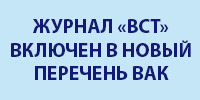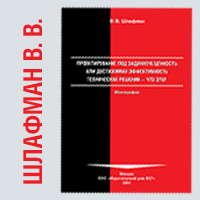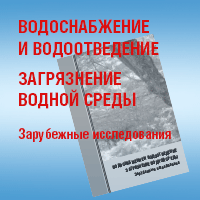№6|2025
СИСТЕМЫ ВОДООТВЕДЕНИЯ
УДК 628.221
DOI 10.35776/VST.2025.06.02
Обоснование оптимального варианта адаптации системы водоотведения Санкт-Петербурга к условиям совокупного влияния урбанизации и изменения климата
Часть 4. Обоснование вида модели для управления системой водоотведения
Аннотация
В результате экономического сравнения установлено, что в Санкт-Петербурге оптимальным вариантом адаптации системы водоотведения к условиям совокупного влияния урбанизации и изменения климата является сочетание «серых» технологий и автоматизированной системы управления (АСУ). К элементам «серых» технологий, в частности, относится строительство регулируемых резервуаров и узлов перераспределения потоков между бассейнами. АСУ с управлением регулируемыми резервуарами и выпусками воды в режиме реального времени (Real Time Control, RTC) является апробированным подходом к сокращению затоплений и переливов неочищенных сточных вод. Методология разработки стратегий RTC состоит из двух основных этапов. Первый этап – определение управляемых суббассейнов, оснащенных точками управления и точками перелива. На втором этапе данные этих подсистем (суббасейнов) и их взаимосвязей используются для разработки алгоритмов управления. В условиях Российской Федерации и Санкт-Петербурга реализовать такой подход практически невозможно по субъективным и объективным причинам. Одним из выходов из сложившейся ситуации является применение в качестве управляющей модели искусственных нейронных сетей, которые смогут обеспечить скорость анализа, способность к обобщению и высокую отказоустойчивость, необходимые для эффективной реализации.
Ключевые слова
система водоотведения поверхностного стока , подтопления , адаптационные мероприятия , система автоматизированного управления водоотведением
Для цитирования: Волков С. Н., Лукьянчук М. Ю., Жукова А. Г., Солохин А. А., Кузьмин В. А., Житенев А. И., Рублевская О. Н., Гвоздев В. А., Ерофеев В. В., Костенко И. Г., Игнатчик В. С., Игнатчик С. Ю., Кузнецова Н. В., Сенюкович М. А., Ещенко А. Н. Обоснование оптимального варианта адаптации системы водоотведения Санкт-Петербурга к условиям совокупного влияния урбанизации и изменения климата. Часть 4. Обоснование вида модели для управления системой водоотведения // Водоснабжение и санитарная техника. 2025. № 6. С. 9–18. DOI: 10.35776/VST.2025.06.02.
Дальнейший текст доступен по платной подписке.
Авторизуйтесь: введите свой логин/пароль.
Или оформите подписку
Список цитируемой литературы
- Волков С. Н., Лукьянчук М. Ю., Жукова А. Г. и др. Обоснование оптимального варианта адаптации системы водоотведения Санкт-Петербурга к условиям совокупного влияния урбанизации и изменения климата. Часть 1. Программа-методика обоснования оптимального варианта // Водоснабжение и санитарная техника. 2025. № 3. С. 42–50. DOI: 10.35776/VST.2025.03.05.
Volkov S. N., Luk’ianchuk M. Iu., Zhukova A. G. et al. Justification of the optimum alternative of the wastewater disposal system of St. Petersburg adapting to the conditions of the joint effect of urbanization and climate change. Part 1. Program-method for justification of the optimal alternative. Vodosnabzhenie i Sanitarnaia Tekhnika, 2025, no. 3, pp. 42–50. DOI: 10.35776/VST.2025.03.05. (In Russian). - Волков С. Н., Лукьянчук М. Ю., Жукова А. Г. и др. Обоснование оптимального варианта адаптации системы водоотведения Санкт-Петербурга к условиям совокупного влияния урбанизации и изменения климата. Часть 2. Результаты обоснования оптимального варианта адаптации // Водоснабжение и санитарная техника. 2025. № 4. С. 28–35. DOI: 10.35776/VST.2025.04.04.
Volkov S. N., Luk’ianchuk M. Iu., Zhukova A. G. et al. Justification of the optimum alternative of the wastewater disposal system of St. Petersburg adapting to the conditions of the joint effect of urbanization and climate change. Part 2. Results of substantiation of the optimum alternative. Vodosnabzhenie i Sanitarnaia Tekhnika, 2025, no. 4, pp. 28–35. DOI: 10.35776/VST.2025.04.04. (In Russian). - Dirckx G., Schütze M., Kroll S. et al. RTC versus static solutions to mitigate CSO’s impact. 12nd International Conference on Urban Drainage, Porto Alegre/Brazil, 10–15 September 2011.
- Loucks E. D., Locke E. F., Heinz S. R., Vitasovic Z. C. A real-time control strategy for operating the Milwaukee Metropolitan Sewerage District (MMSD) conveyance and storage system. Proceedings of the 2004 World Water and Environmental Resources Congress: Critical Transitions in Water and Environmental Resources Management, June 27 – July 1, 2004, Salt Lake City, UT. Environmental and Water Resources Institute and American Society of Civil Engineers, Reston, VA.
- Pleau M., Colas H., Lavalle´e P. et al. Global optimal real-time control of the Quebec urban drainage system. Environmental Modelling and Software, 2005, v. 20, article id. 401e413.
- Vanrolleghem P. A., Benedetti L., Meirlaen J. Modelling and real-time control of the integrated wastewater system. Environmental Modelling and Software, 2005, v. 20, article id. 427e442.
- Vazquez J., Francois M., Gilbert D. Real-time management of a sewage system: verification of the optimality and applicability of graphical linear programming compared to mixed linear programming. Revue des Sciences de l’Eau, 2003, v. 16 (4), article id. 425e442 (article in French).
- Weyand M. Real-time control in combined sewer systems in Germany and some case studies. Urban Water Journal, 2002, v. 4 (4), article id. 347e354.
- Волков С. Н., Лукьянчук М. Ю., Жукова А. Г. и др. Обоснование оптимального варианта адаптации системы водоотведения Санкт-Петербурга к условиям совокупного влияния урбанизации и изменения климата. Часть 3. Оценка экономической эффективности автоматизированной системы управления водоотведением // Водоснабжение и санитарная техника. 2025. № 5. С. 39–46. DOI: 10.35776/VST.2025.05.05.
Volkov S. N., Luk’ianchuk M. Iu., Zhukova A. G. et al. Justification of the optimum alternative of the wastewater disposal system of St. Petersburg adapting to the conditions of the joint effect of urbanization and climate change. Part 3. Estimation of the economic efficiency of an automated wastewater management system. Vodosnabzhenie i Sanitarnaia Tekhnika, 2025, no. 5, pp. 39–46. DOI: 10.35776/VST.2025.05.05. (In Russian). - Schütze M., Erbe V., Haas U. et al. Sewer system real-time control supported by the m180 guideline document. Urban Water Journal, 2008, v. 5 (1), pp. 69–78.
- Dirckx G., Schütze M., Kroll S. et al. Cost-efficiency of RTC for CSO impact mitigation. Urban Water Journal, 2011, v. 8 (6), pp. 367–377.
- Kroll S., Van Impe J., Willems P. A methodology for the design of RTC strategies for combined sewer networks. Water, 2018, v. 10 (11), 1675.
- Schütze M., Campisano A., Colas H. et al. Real time control of urban wastewater systems – where do we stand today? Journal of Hydrology, 2004, v. 299, pp. 335–348.
- Bach P. M., Rauch W., Mikkelsen P. S. et al. A critical review of integrated urban water modelling – Urban drainage and beyond, Environmental Modelling and Software, 2014, v. 54, pp. 88–107.
- Pu W., Lemmon M. D. Distributed flow control using embedded sensor networks and actuators to reduce combined sewer overflow events (CSO). In Proceedings of the 46th IEEE Conference on Decision Making and Management. December 12–14, 2007, New Orleans, Louis.
- Reghaber T. P., Talley J. V. Detection and control of combined sewer overflow events using built-in sensor network technology. In the Effects of global climate change. American Society of Engineers, 2005, pp. 1–12.
- See C. H., Khoroshenkov K. V., Ali M. T. B., Tait S. J. Acoustic sensor of the combined sewer overflow screen (CSO) monitoring in the drainage infrastructure. Sensors, 2021, v. 21 (2), 404.
- Montestruk L. CSOnet: a wireless network of sensors and actuators on an urban scale. MD Lemmon Department of Electrical Engineering, University of Notre Dame. 2008.
- EurEau. Europe’s water in figures: An overview of the European drinking water and waste water sectors (9782960222630). 2021.
- Ahammed F. A review of water-sensitive urban design technologies and practices for sustainable stormwater management. Sustainable Water Resources Management, 2017, v. 3 (3), pp. 269–282.
- Botturi A., Ozbayram E. G., Tondera K. et al. Combined sewer overflows: A critical review on best practice and innovative solutions to mitigate impacts on environment and human health. Critical Reviews in Environmental Science and Technology, 2020, v. 51 (15), pp. 1585–1618.
- Imran H. M., Akib S., Karim M. R. Permeable pavement and stormwater management systems: A review. Environmental Technology, 2013, v. 34 (17–20), pp. 2649–2656.
- Shishegar S., Duchesne S., Pelletier G. Optimization methods applied to stormwater management problems: A review. Urban Water Journal, 2018, v. 15 (3), pp. 276–286.
- Creaco E., Campisano A., Fontana N. et al. Real time control of water distribution networks: A state-of-the-art review. Water Research, 2019, v. 161, pp. 517–530.
- Lund N. S. V., Falk A. K. V., Borup M. et al. Model predictive control of urban drainage systems: A review and perspective towards smart real-time water management. Critical Reviews in Environmental Science and Technology, 2018, v. 48 (3), pp. 279–339.
- Daal P., Gruber G., Langeveld J. et al. Performance evaluation of real time control in urban wastewater systems in practice: Review and perspective. Environmental Modelling and Software, 2017, v. 95, pp. 90–101.
- Werf J. A., Kapelan Z., Langeveld J. Towards the long term implementation of real time control of combined sewer systems: A review of performance and influencing factors. Water Science and Technology, 2022, v. 85(4), pp. 1295–1320.
- Wang X., Xie H. A review on applications of remote sensing and geographic information systems (GIS) in water resources and flood risk management. Water, 2018, v. 10 (5), 608.
- Lund N. S. V., Falk A. K. V., Borup M. et al. Model predictive control of urban drainage systems: A review and perspective towards smart real-time water management. Critical Reviews in Environmental Science and Technology, 2018, v. 48 (3), pp. 279–339.
- Campisano A., Cabot Ple J., Muschalla D. et al. Potential and limitations of modern equipment for real time control of urban wastewater systems. Urban Water Journal, 2013, v. 10, pp. 300–311.
- Vitasovich Z. K. Real-time management of urban drainage networks. Washington, DC, USA: The United States Environmental Protection Agency (US EPA) and the Office of Research and Development, 2006.







